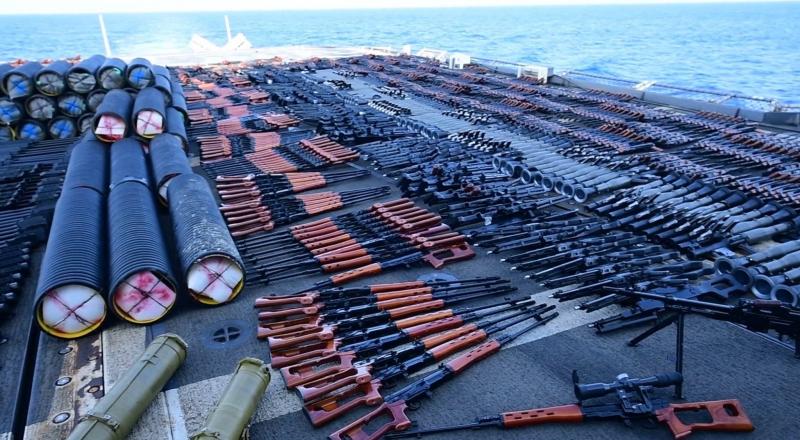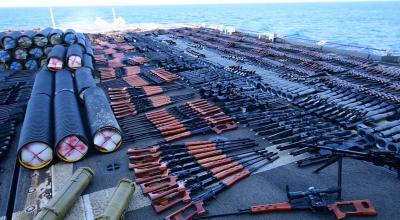The United States has suspended the shipment of a weapons consignment to Israel, which includes heavy bombs used in its campaign against Hamas fighters in Gaza, resulting in the deaths of over 34,000 Palestinians so far. This suspension comes as Israeli Prime Minister Benjamin Netanyahu continues a military assault on the Palestinian city of Rafah, despite objections from U.S. President Joe Biden.
**Which Bombs Were Suspended?**
U.S. officials indicated that "Washington halted the shipment consisting of 1,800 bombs, each weighing 2,000 pounds (907 kilograms), and 1,700 bombs weighing 500 pounds (approximately 227 kilograms)." Four sources for a media outlet stated that the delayed shipments, which are postponed for at least two weeks, include munitions produced by Boeing that convert unguided bombs into precision-guided munitions, along with small-diameter bombs (SDB-1). The SDB-1 is a precision-guided glide bomb containing 250 pounds (approximately 113 kilograms) of explosives. These shipments were part of a previously approved consignment and are not included in a recently approved additional aid package worth $95 billion by the U.S. Congress in April.
**Why Is the U.S. Preventing the Shipment of These Bombs?**
U.S. Secretary of Defense Lloyd Austin stated in a Senate hearing on Wednesday that the U.S. is reviewing "near-term security assistance... in light of current events in Rafah." An anonymous U.S. official revealed that the American decision stemmed from concerns about "the end use of the 2,000-pound bombs and the impact they may have in densely populated urban areas as seen in other parts of Gaza." The official added that the U.S. carefully reviewed the delivery of weapons that may be used in Rafah. Regarding Biden's involvement, U.S. officials noted that "the decision was made last week, with Biden directly involved."
**What Damage Could 2,000-Pound Bombs Cause?**
Large bombs like those weighing 2,000 pounds have a broad range of impact. The United Nations states that "the pressure from the explosion can tear lungs, burst sinus cavities, and sever limbs hundreds of meters from the blast site." A 2022 report from the International Committee of the Red Cross indicated that the use of large-scale explosives in densely populated areas "is very likely to have indiscriminate effects or violate the principle of proportionality."
**What Is Israel's Response?**
Israel denies targeting Palestinian civilians, asserting that its focus is on eliminating Hamas, and claims it takes all necessary precautions to avoid unnecessary casualties. After the news broke on Tuesday in Washington, a senior Israeli official declined to confirm the report, stating, "If we have to fight with our nails, we will do what we have to do." A military spokesperson indicated that any disagreements would be resolved in closed sessions.
**Was Israel's Use of These Bombs in Gaza Legal?**
International humanitarian law does not explicitly prohibit aerial bombardment in densely populated areas, but civilians should not be targets, and the specific military objective must be proportional to the expected civilian casualties or damages.
**What Does the International Criminal Court Say?**
The Rome Statute of the International Criminal Court, which is investigating Israel's actions in Gaza, categorizes intentional attacks as a war crime when it is known that casualties or damage among civilians will be "clearly excessive" in relation to any direct military advantage.




